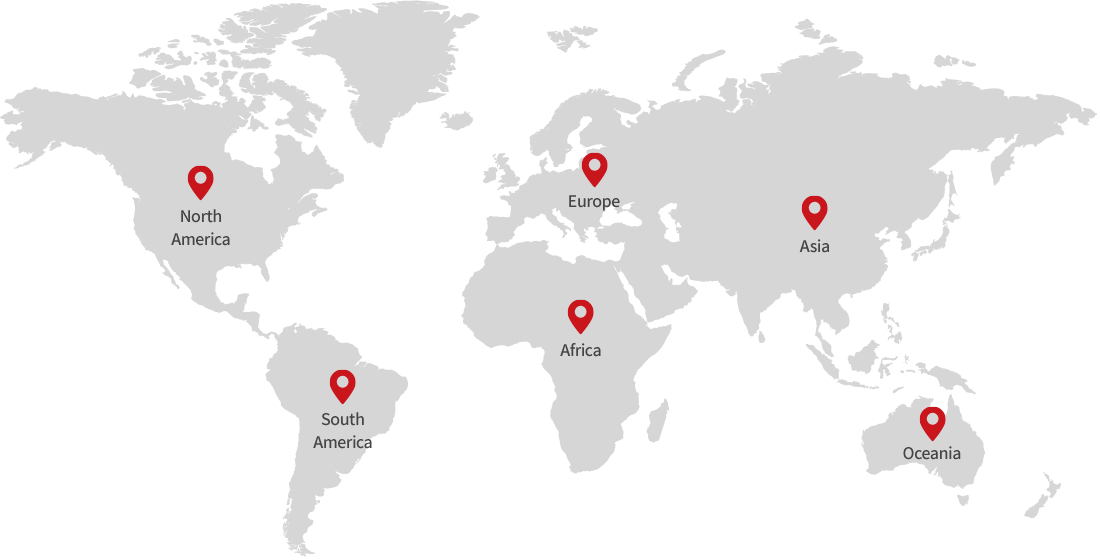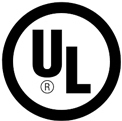NCT is now part of

GMA(Global Market Access)
 > Overseas Certification > GMA(Global Market Access)
> Overseas Certification > GMA(Global Market Access)

-

- CE(EU)
CE is the EU's united standards certification mark, forced standards, and abbreviation for the French word 'ConformiteEuropeen'. CE Marking applies to products regulated by the health, safety, environment and consumer protection law distributed within EU, and it is essential for manufacturers who want to sell products applied of these laws to the European market to attach CE marking to their products. CE Marking means the product meets all the requirements of EU Directiverelated to safety, health, environment and consumer protection, and products related to consumer safety used inEU must be approved and attach a CE mark. CE marking does not mean quality guaranteed, but it is means to ensure the product meets basic safety conditions (requirements),and the product with CE marking can be freely distributed in about 30 countries in Europe. It means that one of the manufacturers, importers, and third parties (certificate authority) conducted product-related conformance test so that the product can be distributed in the market without any limit, so CE marking should be essentially attached to products related to the consumer health, safety and environment, and the marked products may be freely distributed without inspection or test within the EU, EFTA countries.
CE is the EU's united standards certification mark, forced standards, and abbreviation for the French word 'ConformiteEuropeen'. CE Marking applies to products regulated by the health, safety, environment and consumer The EU is managing CE certification through directive, European Norms(EN), harmonized documents and pre-standard.In December 1990, the test and certification system conducting conformance test according to product standard and technology regulation were unified as global approach, certification procedures or marks applied differently for each product and a group of 17 items subject to certificate and eight certification modules are settled, and CE Marking began in earnest. Currently, CE Marketing applies to products in 22 categories.
Energy-Related Products (ErP) Directive
EU’s guidance on eco-friendly plan requirements for energy-related products (2009/125/EC, ErP or eco-friendly plan guidelines :Eco-design Directive) provides coherent EU-level requirements to improve environmental outcome of energy-related products.
Energy-using products:EUPs
Products using, generating, transmitting and measuring energy (including power, gas and fossil fuels) are as follows:
- Computers, monitors, printers and other office supplies
- Consumer appliances such as TV, set-top box, and radio
- Home appliances such as dishwashers, washing machines and clothes dryers
- Air conditioner and refrigeration / freezer units
- Lamps and household lighting equipment
-

- FCC(United States)
- Federal Communications Commission (FCC) is an agency of the U.S. government established in 1934 under the Communications Act, and develops and regulates policies related to wireless, TVs, satellites, cables and corded communications in the inside and outside of the country
- They set up radio wave generation specifications for radio wave generating devices by forced standard and evaluate or certify the products based on the standards
- They approve wireless transmitters for effective use of frequencyranged from 10KHz to 3,000GHz, certify wireless communications equipment and regulate and approve unnecessary electromagnetic interference (EMI)
- You should acquire FCC certification to export not only various wireless communications equipment but also most electric/electronic devices that can generate electromagnetic waves such as lowpower wireless devices and computers and peripheral devices to the U.S
-

- UL(Uderwriter Laboratories Inc.)
- A representative U.S. certificate authority established in 1894 to reduce and prevent bodily injury of user or serviceman, and damage of human life and property
- UL is the first safety standards develop and certificate authority of U.S., and test thousands of products and provide certifications according to safety standards and standards in various countries around the world for more than 120 years
- UL provides product safety test and certification, environmental test, performance test, and health care and medical device certification as well as all relevant services
- UL standards are used as safety standards in the U.S. It is non-forced standards, non-forced approval of U.S. federal government, but there are also forced area according to state law in some states
- The reliability of UL is highly regarded in U.S. and most of the producers, vendors and importers are demanding it due to its consumer preference
ENERGY STAR> The Energy Star system in U.S., the most widely known of all energy efficiency programs, is a spontaneous testing and labeling program jointly operated by U.S. Environmental Protection Agency(EPA) and the Department of Energy (DoE). Over the past two decades, the use of Energy Star -labeled products has reduced energy demand by 270 kilowatt-hours and saved more than $20 billion of energy costs.
Currently, Energy Star certification is applied to consumer goods in the following categories:- White color appliances - including refrigerators, freezers, dishwashers, washing machines, dryers, etc.
- Consumer appliances - including televisions, set-top boxes and cable equipment, audio / video equipment, computers and monitors, calling systems, etc.
- Heating and cooling apparatus - including air conditioners, air purifiers, dehumidifiers, temperature controllers, etc.
- Lighting equipment and ventilators - including lamps, lights, LED lights, fluorescent lights, ventilators, etc.
*Manufacturers who want Energy Star certification of consumer products must have samples to receive tests for the requirements of applicable Energy Star product specifications from laboratories designated by EPA. After the test, certification authority designated by EPA helping the manufacturers attach the Energy Star label to the approved product evaluates and verifies the product test results. In addition, many Energy Star-certified products are subject to regular verification test after approval.
CEC> NCT is a testing laboratory listed on CEC and is a third-party registration agency, and we can handle test and registration work at once.CEC certification is Appliance Efficiency Regulation executed in December 30, 2005 by California Energy Commission. The purpose of this legislation is to raise the energy saving standard of electric devices and to reduce carbon dioxide emissions. It is used for external power units, mobile phones, household wireless phones, portable music devices, and mobile game consoles.
-

- NTRL(North America)
- It is a safety certification system operated by OSHA(Occupational Safety & Health Administration), affiliated organization of U.S. Department of Labor
- OSHA's national testing laboratory program recognizes private testing laboratories in the U.S. as national testing laboratory through regular verification and conducts periodic inspections.
- NRTL is a third-party organization that certifies products for the North American market. There are currently 18 agencies registered in the NRTL, and companies who want to export to the U.S. could meet U.S. legal requirements related to safety certification by obtaining the certification mark in one of these 18 NRTLs.
- NRTL which gets accreditation from the OHSA tests and certifies if products and components (materials) are suitable to safety standards, and certified products and components are labeled after registration.
- NRTL is not a forced certification system, but it is required for some states, and buyers in U.S. basically require.
- Products needing NRTL certification are designated by OSHA and include approximately 660 items and 37 item groups including monitors, computers, A/V devices, home appliances, fire extinguishing equipment, and gas equipment.
- NRTL isproduct safety certification just for safety, FCC administer communications and EMI-related in U.S., and FDA manage medical devices.
-

- CSA(Cannada)
- CSA is safety standards and compulsory/arbitrary standards of Canada. (Dangerous items such as electric devices, gas-burning appliances, etc. are compulsory, and dangerless items such as quality control are arbitrary.)
- Canadian Engineering Standards Association (CESA) was changed to CSA in 1944 and registered the CSA mark. Later, in 1993, the CSA was officially recognized by OSHA of U.S. as NRTL.
- CSA is the most utilized certification in Canada, and provides testing works and certification services for 1,800 items and eight major categories, including IT, structural supplies, energy, environment, gas appliances, life sciences, and quality/management, as well as electric safety certification.
- Although CSA does not have the authority to force the standard because it is a non-profit private organization, it is regarded as a compulsory standard as federal and state agencies quote it to follow the CSA standard in law enactment.
-

- NOM(Mexico)
It is proceeded in accordance with the regulations of Metrology and Standardization Federal Law of standards and measurement.
The conformance test is classified as NOM (NormasOficialesMexicanas) for compulsory standards and NMX (NormasMexicanas) for autonomy standards in the Mexican product certification.
- NOM(NormasOficialesMexicanas)
- Official Mexican Standards: Forced technical standardsmanaged by State Departments.Evaluates the safety of products and systems used in Mexico withthis standards.
- NormasMexicanas - The Mexican Standards (NMX): Testing methodapplied to imported goods or products, standard including guidelines, and product characteristic. Not compulsory but usually related to the quality of products and systems.
- In October 1993, Federal Law on Metrology and Standardization was enacted, reorganizing Mexico'sconforcement system. Standardization, certification, testing, and screening tasks were transferred to private institutions under newFederal Law on Metrology and Standardization of Mexico, and standards development organizations and third-party certificateorganizations were established.
- Certificate agencies are designated by product line, and for electric and electronic products, ANCE (home appliances, gas products) and NYCE (communications, IT products) are primarily responsible for certification.
- If the product is an item relevant to the compulsory standard NOM, NOM certification should be obtained.
- In case of electric and electronic products, the Mexican Ministry of Economy(Secretaria de Economia, SE) gives certification authority to the following agencies:
DGN: Responsible for issuing certificates for products that certificate authority is not existed.
ANCE: Responsible for standards development and certificating works for household electric devices. Certificate agency and state registered testing laboratory
NYCE: Responsible for standards development and certificating works for electronic devices


